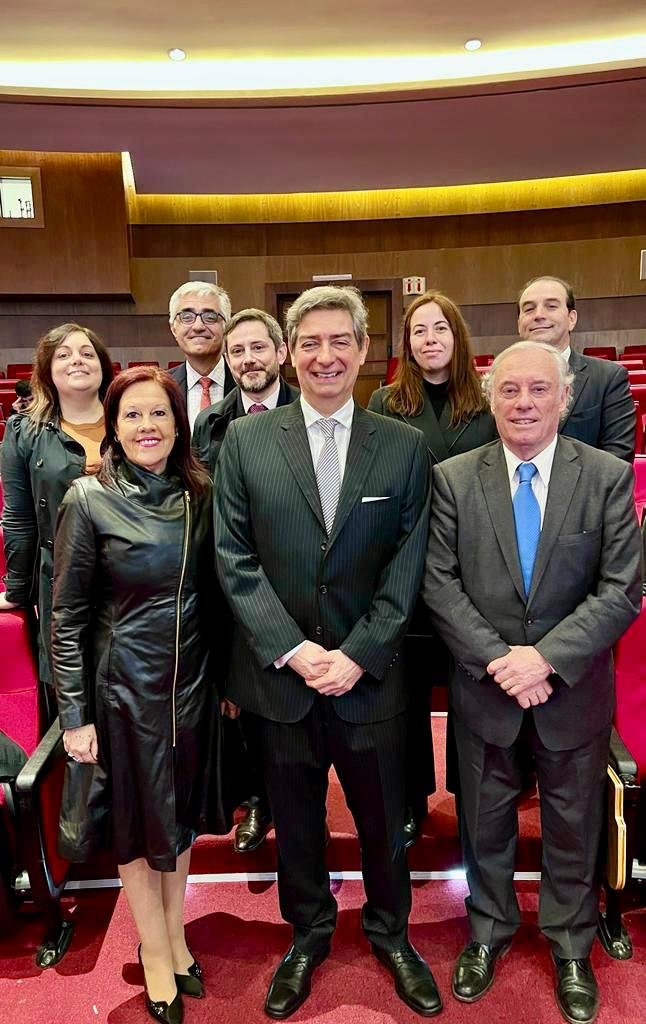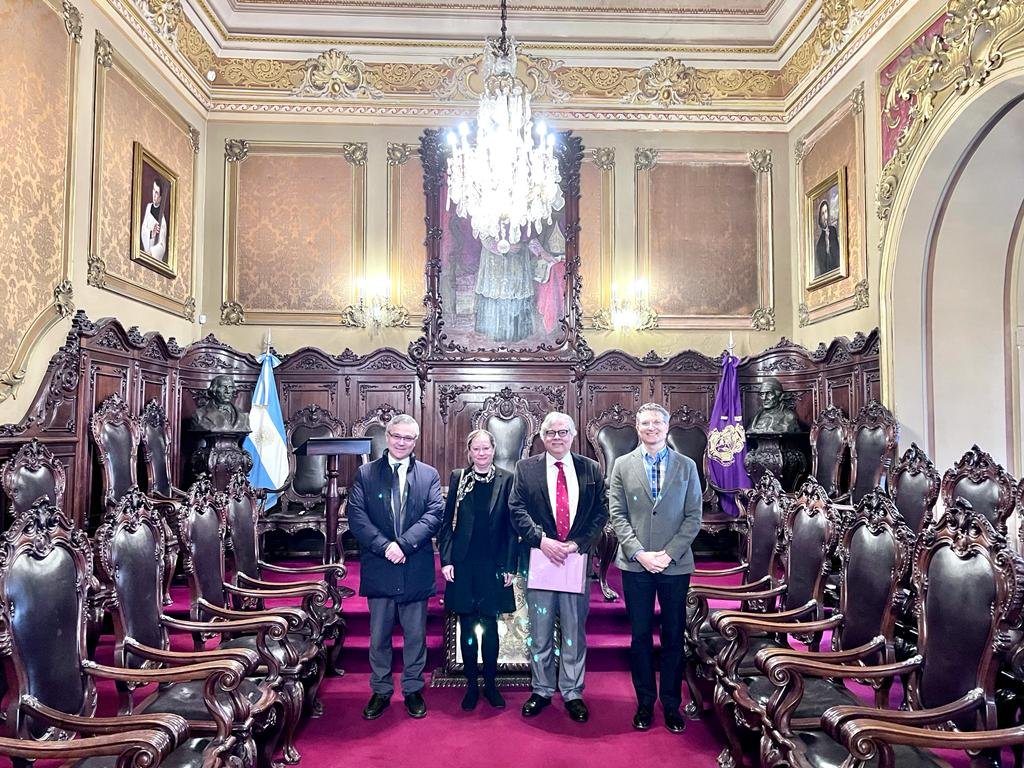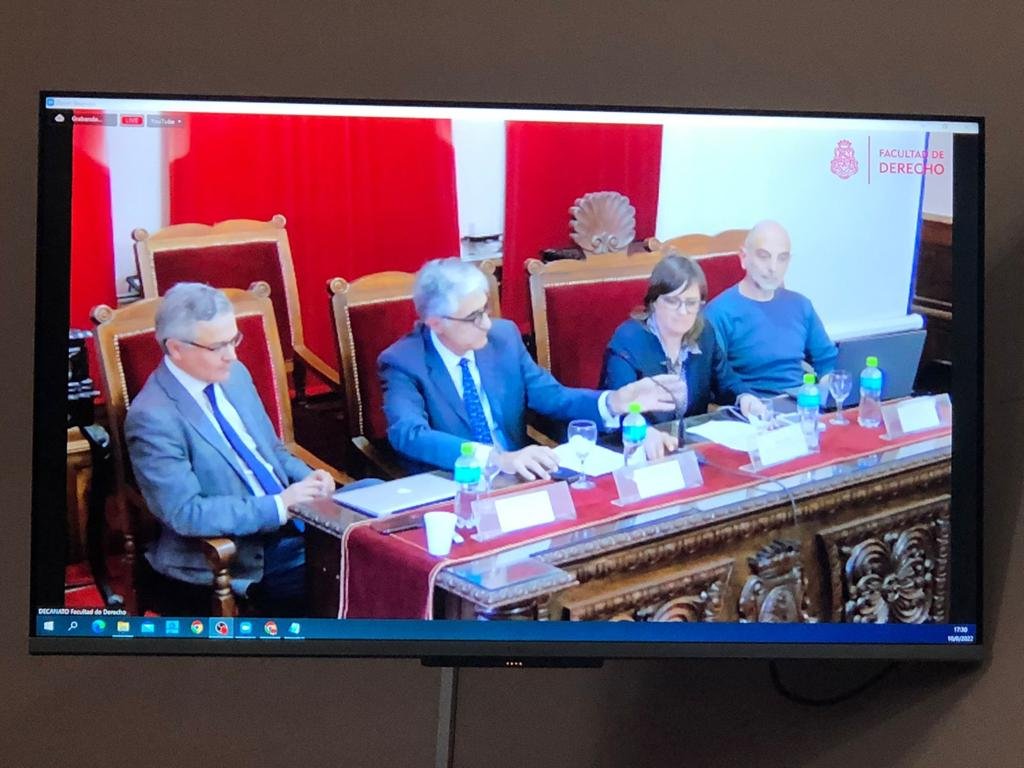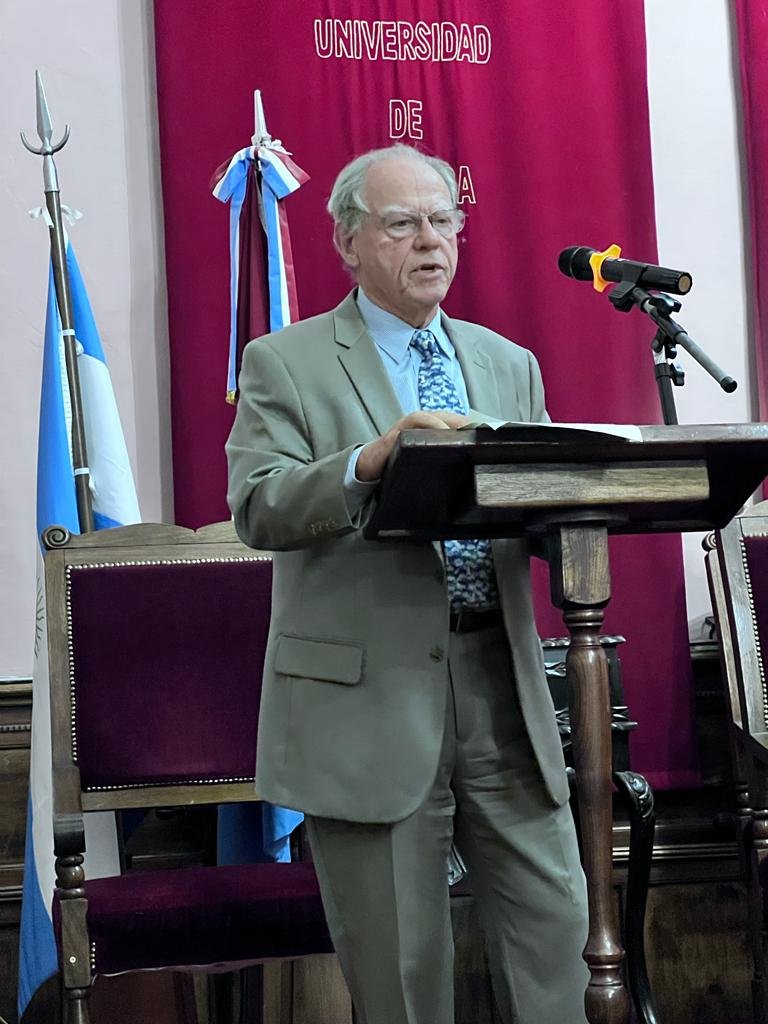Reflections on the Roundtable on Political Sentiments and Moral Emotions in Constitutional Law
/Helle Krunke, Pablo Riberi & Adrienne Stone
University of Copenhagen, National University of Cordoba & Melbourne Law School
The IACL recently marked the global return to in-person conferencing with a Roundtable in Córdoba, Argentina held on 9 and 10 August 2022. The Roundtable, on the theme “Political Sentiments and Moral Emotions in Constitutional Law”, was hosted by Professor Pablo Riberi of the National University of Córdoba with support from Austral University, the University of San Andres, the Catholic University of Córdoba, and the Argentine Association of Constitutional Law.
The program focussed on aspects of our humanity – our emotions and our morality – that are often overlooked in the study of constitutionalism and yet which seem to be critical determinants of constitutional success.
Moral emotions and political sentiments are deeply ingrained in constitutional provisions. Even more so, they are embodied in almost every understanding of the word ‘justice’. As was reflected during the conference, these are the main reasons why the old underlying philosophical debate on the makings of human knowledge and the nature of practical reason´s decision making must still hasten our utmost attention. Many participants, accordingly, shared the idea that these concerns should be particularly appealing to those engaged in spelling out the lingering impact of constitutional design in terms of power engineering and human rights enforcement.
Professor Riberi, as convenor of the Roundtable, outlined a series of important questions on which discussions focussed: Beyond practical reason and economic rationality do any other human distinctive features reflect on constitutional law? Is it possible to identify any range of moral feelings and/or emotional mind-states as normatively relevant in terms of constitutional decision-making? Do atavistic political sentiments still count? Why do similar written constitutions – with almost identical provisions – not exhibit similar levels of compliance?
These are questions of enduring significance, but they are often overlooked in the study of constitutionalism even though they take on a particular importance in the context of crisis and democratic decay, which are sadly so much a feature of our times.
Therefore, as Professor Riberi explained: ‘the conference’s goal was to analyze how and why constitutional emotional responses such as civic trust, fraternity, tolerance, altruism, constitutional patriotism, have thrived and become the cement of peaceful coexistence and social cooperation in some polities’ while they have played a less significant role elsewhere, In his view, ‘reflecting on these categories looks particularly relevant in Latin America, where high rates of corruption and authoritarianism are rapidly undermining the legacy of constitutionalism.’
The program began with a keynote address from his Honour Horacio Rosatti, Chief Justice of the Argentine Supreme Court. It then proceeded to 7 panels that explored the way in which both reason and emotions can reinforce (or alternatively undermine) constitutional settings. The panels featured an eminent and diverse group of scholars from all over the world, and included panels focussed on contemporary challenges to democracy and the particular context of Latin America. The Roundtable closed with a distinguished keynote panel on which Justice Carlos Rosenkrantz of the Supreme Court of Argentina joined Professor András Sajó, whose seminal work on constitutional emotions was central to the Roundtable’s discussions. A selection of papers from the Roundtable is now available on the IACL-AIDC website.
The opening session of the Roundtable provided a taste of the rich musical culture of Argentina through an exciting live performance with an Argentine quartet and a singer. The Roundtable took place in the beautiful and historical surroundings of Córdoba City. Founded in 1613, the National University of Córdoba is one of the oldest universities in the Americas. Academic debates from the conference naturally continued into the lively conference dinners, which introduced the international scholars to the delicious Argentine gastronomy. This way, the Roundtable combined excellent scholarship and rich culture in an unforgettable experience.
Helle Krunke is Professor at the University of Copenhagen and head of the Centre for European and Comparative Legal Studies
Pablo Riberi is Professor at the School of Law of the National University of Cordoba and at the School of Political Sciences of the Catholic University of Córdoba, Argentina
Adrienne Stone is Melbourne Laureate Professor and Director of the Centre for Comparative Constitutional Studies at Melbourne Law School and the President of the IACL-AIDC
Suggested citation: Helle Krunke, Pablo Riberi and Adrienne Stone, ‘Reflections on the Roundtable on Political Sentiments and Moral Emotions in Constitutional Law’ (13 September 2022) https://blog-iacl-aidc.org/new-blog-3/2022/9/14/reflections-on-the-roundtable-on-political-sentiments-and-moral-emotions-in-constitutional-law.










![Xx1088_-_Seoul_city_nightscape_during_1988_Paralympics_-_3b_-_Scan [test].jpg](https://images.squarespace-cdn.com/content/v1/5af3f84a4eddec846552ea29/1527486925632-3VZP3ASLAHP1LJI0D9NJ/Xx1088_-_Seoul_city_nightscape_during_1988_Paralympics_-_3b_-_Scan+%5Btest%5D.jpg)
